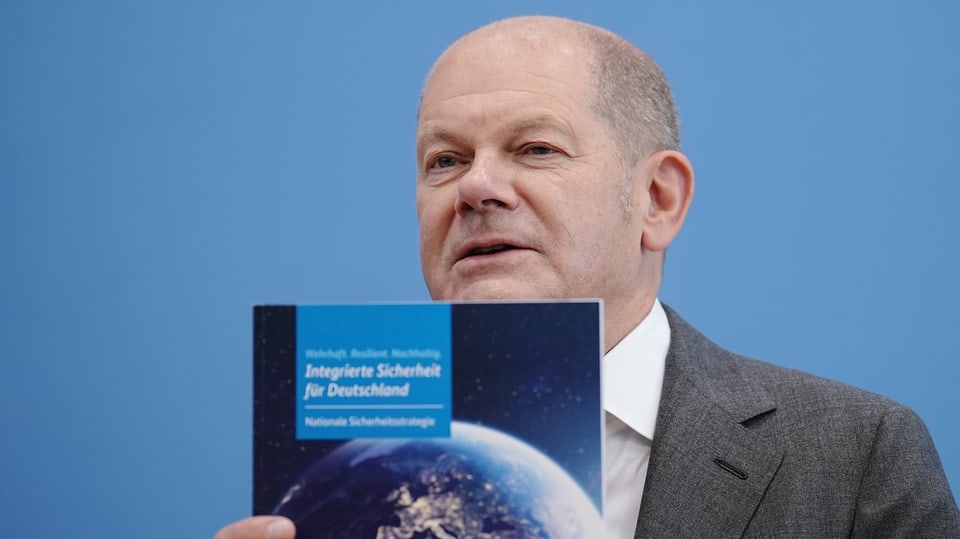For months, the German coalition government struggled to come up with a national security strategy. Now it has been published. The German government explains how it intends to react to external and internal threats. According to the paper, the greatest danger for Germany in the foreseeable future is Russia. The peace researcher Ursula Schröder explains what the strategy should bring.
SRF News: Is this comprehensive security strategy a response to the war against Ukraine, the specification of the term “turning point”?
Ursula Schröder: No, that’s not the strategy. This strategy was commissioned before the Russian war of aggression against Ukraine. It is more than just a response to the war in Ukraine. It is used to define the larger political narratives in a world of multiple crises. That is why it also has references to biodiversity, the climate crisis, internal security and resilience.
This is Germany’s security strategy:
What is meant by integrated security?
The dimensions addressed by the security strategy are, firstly, the inviolability of life, classic security policy, understood in military terms, and then the protection of the freedom of our lives. These are questions of democratic resilience. And thirdly, it is protecting the basis of life, i.e. the climate, planetary security. And these are to be driven forward by integrated policies. This will still have to be defined in the implementation.
How these goals will be underpinned with resources and linked to one another is not yet clear at this point in time.
There will be no national security council in Germany. Can that work if each department acts on its own?
I ask myself the same thing. I think that the political and strategic narrative of the strategy – after first reading – is successful. But how these goals will be resourced and linked is not clear at this point.

Legend:
German Chancellor Olaf Scholz presented the National Security Strategy at a press conference with his government.
Keystone/dpa/KAY NIETFELD
Why did the German government decide against a National Security Council?
There were different ideas within the coalition. The Federal Foreign Office does not want to hand over any powers to the Federal Chancellery. The FDP, in turn, supports the National Security Council. And then there is the question: Should it only be coordinated? Or is there the shadow of hierarchy, i.e. the possibility of enforcing this? The Federal Chancellor already has this competence. That is why it can also work without such a body.
What does this strategy mean for partner countries and rivals?
The partner countries are getting what they probably expected: a clear commitment to multilateral politics. What is meant is a clear commitment to the EU, to strengthening the European Union as a peace project, a strong commitment to NATO, a strong commitment to the relevance of the UN. The statements on Russia and China are much more negative. With regard to China, the strategy is reticent because a China strategy is being worked on at the same time.
For the German population, the view of security is already changing a lot.
What changes specifically for the Germans with this strategy?
For the German population, the view of security is already changing a lot. Foreign Minister Annalena Baerbock said at the press conference that the population had to be prepared for questions and that they also had to ensure security. It is a new understanding of security that security is not only delegated to state bodies. The strategy says to the citizens: Security concerns us all, you have to take precautions.
The conversation was conducted by Simone Hulliger.
